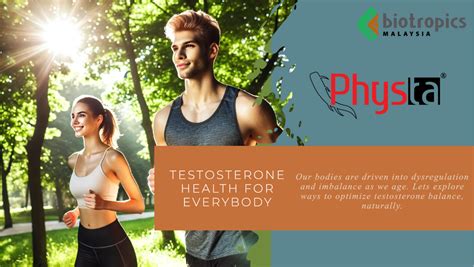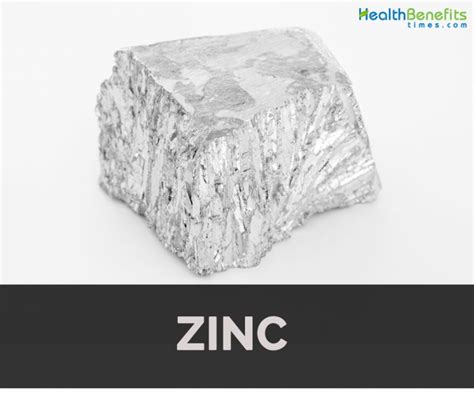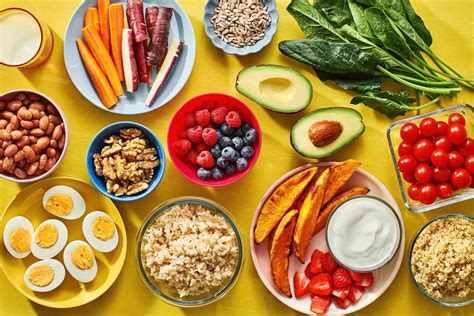What specific dietary micronutrients and lifestyle factors are most critical for naturally optimizing testosterone levels in men for fitness and muscle building?

For men dedicated to fitness and muscle building, optimizing testosterone levels naturally is a game-changer. Testosterone, the primary male sex hormone, plays a crucial role not only in libido and mood but also directly impacts muscle mass, bone density, and fat distribution. While various factors can influence its production, focusing on specific dietary micronutrients and adopting key lifestyle habits offers a powerful, natural pathway to elevate these vital hormone levels, thereby enhancing performance, recovery, and overall physique development.
The Power of Micronutrients: Fueling Testosterone Production
A deficiency in certain vitamins and minerals can significantly hinder the body’s ability to produce adequate testosterone. Ensuring a rich intake of these essential micronutrients through diet is foundational.
Zinc: A Testosterone Catalyst
Zinc is perhaps one of the most well-known minerals linked to testosterone production. It plays a critical role in numerous enzymatic processes, including those involved in hormone synthesis. Studies have shown that even marginal zinc deficiencies can lead to a significant drop in testosterone levels. Furthermore, zinc acts as an aromatase inhibitor, preventing the conversion of testosterone into estrogen.
- Sources: Oysters (exceptionally high), red meat, poultry, beans, nuts, seeds (especially pumpkin seeds), and whole grains.

Vitamin D: The Sunshine Hormone’s Role
Often referred to as the “sunshine hormone,” Vitamin D is technically a steroid hormone precursor. Research consistently links higher Vitamin D levels with higher testosterone levels. It’s involved in various physiological processes, including regulating the endocrine system. Adequate sun exposure is the most natural way to synthesize Vitamin D, but dietary sources and supplementation can also be vital, especially in regions with limited sunlight.
- Sources: Fatty fish (salmon, mackerel, tuna), cod liver oil, fortified dairy products, eggs, and sun exposure.
Magnesium: Enhancing Bioavailability
Magnesium is an essential mineral involved in over 300 enzymatic reactions in the body. For testosterone, it plays a crucial role by reducing oxidative stress and improving insulin sensitivity, both of which can indirectly support healthy hormone levels. More directly, magnesium increases the bioavailability of testosterone by reducing its binding to Sex Hormone Binding Globulin (SHBG). When testosterone is bound to SHBG, it’s inactive; free testosterone is what matters for muscle building and other benefits.
- Sources: Leafy green vegetables (spinach, kale), nuts (almonds, cashews), seeds, legumes, whole grains, and dark chocolate.
Healthy Fats (Cholesterol & Omega-3s): The Building Blocks
Cholesterol is the precursor molecule for all steroid hormones, including testosterone. Therefore, consuming adequate amounts of healthy fats is non-negotiable for optimal testosterone production. Saturated and monounsaturated fats are particularly important. Additionally, Omega-3 fatty acids, while not directly a precursor, contribute to overall cellular health, reduce inflammation, and improve insulin sensitivity, all of which indirectly support hormone balance.
- Sources (Healthy Fats): Avocados, olive oil, coconut oil, nuts, seeds, fatty fish, eggs, grass-fed butter.
Critical Lifestyle Factors for Testosterone Optimization
Beyond nutrition, daily habits and routines significantly impact testosterone levels. Integrating these lifestyle factors is equally as important as dietary considerations.

Prioritize Strength Training
Regular resistance training, especially involving compound movements (squats, deadlifts, bench presses, rows), is a powerful stimulator of testosterone release. These exercises engage multiple large muscle groups, leading to a greater hormonal response. Aim for intense, relatively short workouts (45-60 minutes) to maximize the anabolic response without overtraining, which can be catabolic.
Optimize Sleep Quality and Duration
Sleep is when your body repairs, recovers, and regulates hormones. Chronic sleep deprivation dramatically lowers testosterone levels. Studies show that even a week of restricted sleep can significantly reduce morning testosterone. Aim for 7-9 hours of high-quality, uninterrupted sleep per night. Create a dark, quiet, cool sleep environment and maintain a consistent sleep schedule.

Manage Stress Effectively
Chronic stress elevates cortisol, a hormone that has an inverse relationship with testosterone. High cortisol levels can suppress testosterone production. Incorporate stress-reduction techniques into your daily routine such as meditation, deep breathing exercises, yoga, spending time in nature, or engaging in hobbies you enjoy. Prioritizing mental well-being is crucial for hormonal balance.
Maintain a Healthy Body Composition
Excess body fat, particularly visceral fat around the abdomen, is linked to lower testosterone levels. Adipose tissue contains the enzyme aromatase, which converts testosterone into estrogen. Reducing body fat through a balanced diet and regular exercise can significantly improve testosterone levels and reduce estrogen dominance. Conversely, being too lean can also negatively impact hormone production, so aim for a healthy, sustainable body fat percentage.

Limit Alcohol and Avoid Endocrine Disruptors
Excessive alcohol consumption can directly impair testosterone production and increase its conversion to estrogen. Moderation is key. Furthermore, environmental endocrine disruptors found in plastics (BPA, phthalates), pesticides, and certain personal care products can mimic or interfere with hormones, potentially lowering testosterone. Opt for glass containers, organic foods, and natural personal care products where possible.
The Synergistic Approach: A Holistic Strategy
Optimizing testosterone is not about isolating one factor but embracing a comprehensive, synergistic approach. No single nutrient or lifestyle change will be a magic bullet. Instead, it’s the consistent application of these principles together that yields the most profound and sustainable results. Think of it as building a strong foundation for your hormonal health, which in turn supports your fitness and muscle-building aspirations.

Conclusion: Empowering Your Natural Potential
Naturally optimizing testosterone levels for fitness and muscle building is entirely achievable by focusing on specific dietary micronutrients and critical lifestyle factors. By consciously incorporating zinc, Vitamin D, magnesium, and healthy fats into your diet, coupled with consistent strength training, adequate sleep, effective stress management, and maintaining a healthy body composition, men can significantly boost their natural testosterone production. This holistic strategy not only supports physical goals but also contributes to enhanced energy, mood, and overall well-being, unlocking your full potential in and out of the gym.









